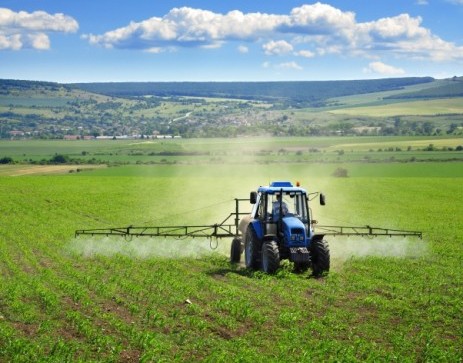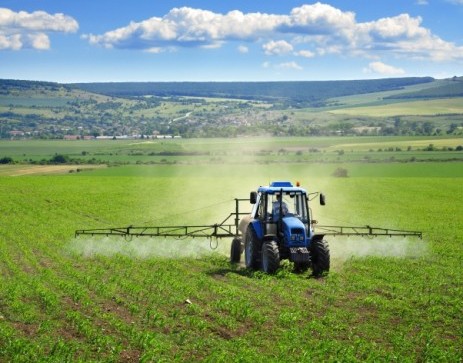 Such large-scale pesticide application may actually reduce yields, a new study finds.Dovetailing nicely with Grist contributor and would-be farmer Steph Larsen’s account of her battle with the hated corn borer, a new study from Washington State University suggests organic growing techniques offer better pest control and larger plants.
Such large-scale pesticide application may actually reduce yields, a new study finds.Dovetailing nicely with Grist contributor and would-be farmer Steph Larsen’s account of her battle with the hated corn borer, a new study from Washington State University suggests organic growing techniques offer better pest control and larger plants.
But first, let’s be clear: The debate over the benefits of organic versus industrial agriculture is never-ending. No one study will convince everyone that one form of agriculture or another is superior.
Instead, let me point you to what’s noteworthy in this study, published in the respected journal Nature. The researchers focus on the concept of “evenness” — the relative abundance of different species, including predators and pests, in a farm’s ecosystem.
“Organic agriculture promotes more balanced communities of predators,” says David Crowder, author of the new study. […]”Our study does not tell farmers they should shift to organic agriculture. What our study suggests is that organic agriculture is promoting these more balanced natural enemy communities and they may have better, organic pest control.”
As the report in Nature explains, it’s “the relative abundance of different species” rather than the number of species present on a farm that may determine the success of one technique over another. This perspective is more important than ever in a time that includes a mysterious bee plague and “superweeds” that are causing more “benign” synthetic pesticides such as Monsanto’s RoundUp to lose their effectiveness while conventional growers and pesticide companies turn to older, far more poisonous alternatives. This research adds some rigor to the claim that such an approach misses the forest for the trees — or more accurately, kills the trees and the forest, and leaves the environment far worse off.
The researchers analyzed data on the denizens of Washington potato fields and found that:
… although organic and conventional farms did not differ markedly in the richness of beetle eaters, the evenness of predators differed “drastically.” Organic fields — where only a limited number of man-made chemicals can be used — had far greater evenness than those where pesticides were applied regularly.
Furthermore, the team set up an experimental field in which they manipulated the evenness of predators. Increasing the evenness led to what the researchers call a “powerful trophic cascade,” resulting in fewer potato-munching beetles and larger potato plants.
Although the work of [study author David] Crowder and his group does not address the issue of yields from organic versus conventional farms, their study found that the increased evenness of organic farms compared with that of conventional farms led to 18% lower pest densities and 35% larger plants. Bigger plants generally mean greater potato yields.
A new National Academy of Sciences report on agriculture argues that research focuses too much on pure productivity at the expense of larger impacts on the ecosystem. And now we have evidence that taking a more expansive view not only leads to a healthier ecosystem, but also to one that’s more productive. Hmmm … what was I saying about never getting that definitive answer?


